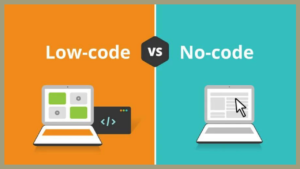Learning to code has historically been a challenging and time-consuming undertaking – often reserved for computer savants or aspiring video game developers.
While Hollywood films and television have often portrayed software engineers as socially awkward, introverted, mythical hackers – this couldn’t be further from the truth in 2023. In fact, it has never been easier for anyone, regardless of background or experience, to gain access to the knowledge, tools, and resources to begin learning to code today.
So, why should you care? I’m glad you asked.
The software engineering industry is and has been suffering from a severe talent shortage for quite some time. In the last decade, there have been a few interesting trends in the technology space:
- Experienced senior software engineers have begun retiring or leaving the workforce
- Companies struggle to replace technical gaps suffered from these losses
- Experienced technical talent is not abundant for companies looking to hire
- Computer Science graduates often lack tangible coding experience for entry-level jobs
- Employers have become more open to untraditional learning backgrounds for entry-level candidates with experience
and all these points have helped create an abundance of career opportunities for motivated self-starters of all ages and backgrounds. In this post, I’m going to break down just a few of the reasons why you should learn to code in your spare time this year.
Table of Contents
Career and lifestyle changes
Before working in tech, all of my jobs had been hourly wages and often less than stimulating or challenging roles. Each of them had a few things in common:
- Standing on my feet most (if not all) of the day
- Pay fluctuated based on hours (or sales/commission in some cases)
- Few to no career advancement opportunities
- Limited days off (often less than 10 days/year)
- Very repetitive work
just to name a few. But, unsurprisingly – tech is an entirely different ball game.
Entry-level software engineers are often referred to as “Junior Developers” and tend to earn salaried pay ranging on average from 64-89K – something not often heard of in entry-level roles in other industries. In addition, things that may be considered luxuries in other roles or industries are often viewed as norms in tech, such as:
- Working remotely permanently
- Unlimited vacation
- Stock/equity options
- Little to no dress requirements (within reason, of course)
- Shortened work weeks
- etc…
and for an upcoming millennial and Gen-Z workforce, the luxury of time, travel, and freedom often far outweigh the risk of remaining in unfulfilled jobs or careers for decades on end – making the lure of tech even sweeter for younger career expats.
It’s easier than ever to learn to code
And I’m not just saying that.
In early 2015, I knew nothing about coding. Fast forward today, and I now work remotely as a Product Manger and oversee teams of software engineers with decades more experience than I do.
How?
The full answer is a topic for another post, but one of the shortest was by attending a coding bootcamp and learning to code in October 2018.
Coding bootcamps are one of the many resources available today to help untraditional techies learn to code and make a career transition into tech. These programs range anywhere from 8 weeks to 6 months and vary on topics and concentrations (i.e. front-end development, unity/game development, full-stack development, etc) to help give students the hands-on coding experience necessary to contend for the entry-level roles we discussed above.
While bootcamp may not be the best option for everyone, there are also helpful “free-sources” on sites like freecodecamp.org and codeacademy.com that can also help jumpstart your learning right from the comfort of your home.
Coding is the closest thing to having a super-power
And I don’t mean that in a “corny” way.
Learning to code truly opens up a new world of personal, business, and career opportunities that otherwise would not be possible:
- Annoyed with a repetitive task? Automate it.
- Have an amazing app idea? Build it.
- Want to customize your website? Code it.
- Have a theory you want to validate? Capture it.
- Have a ton of data you want to make sense of? Analyze it.
and the list goes on and on.
While other industries are being impacted and transformed by software and technology, the tech industry itself is growing faster than can be managed. This allows anyone with the right technical skills and experience to have a wide range of choices when it comes to career paths and options for the foreseeable future – and learning to code puts one in the perfect position to capitalize on the digital gold rush that is learning to code.




